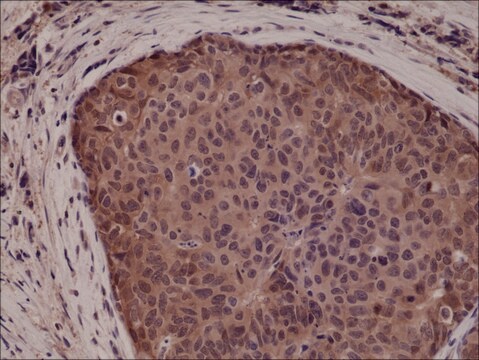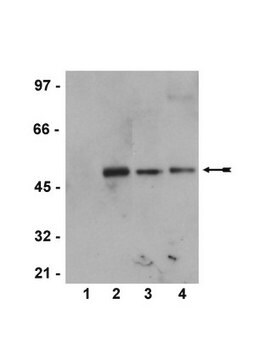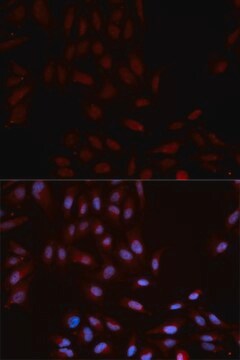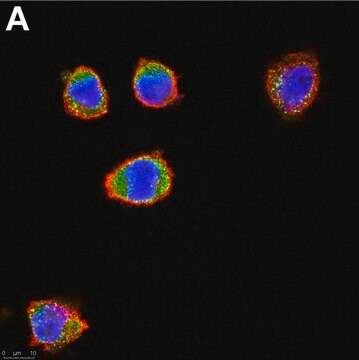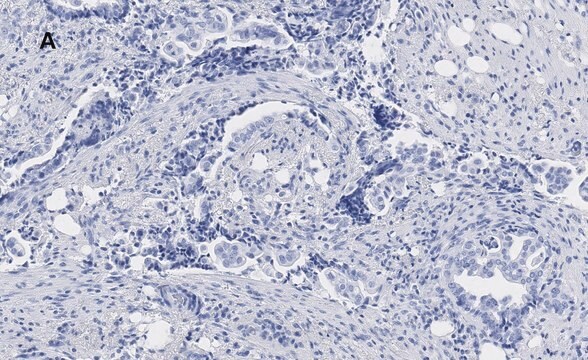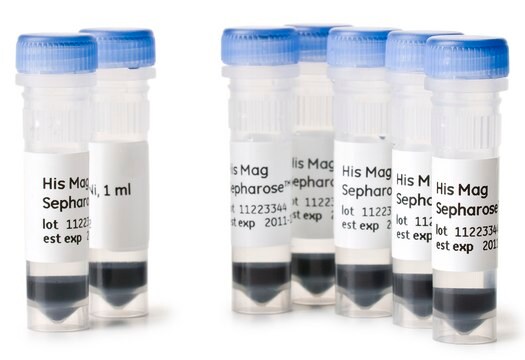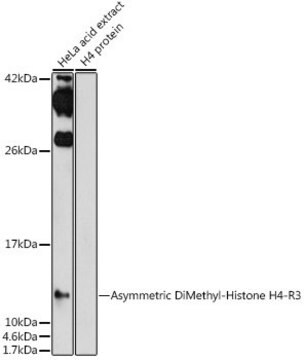SAB5600057
Anti-p38 MAPK Phospho (pT180/pY182) antibody, Rabbit monoclonal
recombinant, expressed in HEK 293 cells, clone RM243, purified immunoglobulin
About This Item
recombinant monoclonal
immunohistochemistry: 1:500-1:1000
Recommended Products
recombinant
expressed in HEK 293 cells
Quality Level
antibody form
purified immunoglobulin
antibody product type
primary antibodies
clone
RM243, monoclonal
recombinant monoclonal
form
buffered aqueous glycerol solution
species reactivity
human
technique(s)
immunoblotting: 1:1000-1:2000
immunohistochemistry: 1:500-1:1000
isotype
IgG
NCBI accession no.
shipped in
wet ice
storage temp.
−20°C
target post-translational modification
phosphorylation (pThr180/pTyr182)
Gene Information
human ... MAPK14(1432)
General description
Specificity
Immunogen
Application
Biochem/physiol Actions
Features and Benefits
Physical form
Disclaimer
Not finding the right product?
Try our Product Selector Tool.
Storage Class Code
10 - Combustible liquids
WGK
WGK 2
Flash Point(F)
Not applicable
Flash Point(C)
Not applicable
Choose from one of the most recent versions:
Certificates of Analysis (COA)
Don't see the Right Version?
If you require a particular version, you can look up a specific certificate by the Lot or Batch number.
Already Own This Product?
Find documentation for the products that you have recently purchased in the Document Library.
Our team of scientists has experience in all areas of research including Life Science, Material Science, Chemical Synthesis, Chromatography, Analytical and many others.
Contact Technical Service